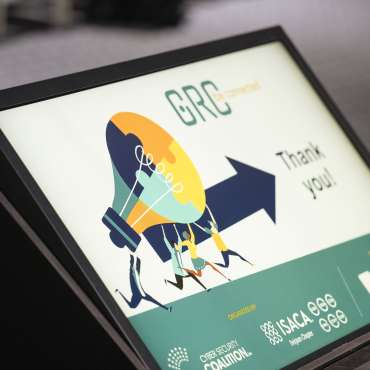Based on the input from its members, the Cyber Security Coalition is well-aware of the continuing massive shortage of cyber security experts. A range of initiatives will be needed to close the gap: Passwerk is one of them. “People on the autism spectrum can have the right competences for technical jobs that need a lot of precision. We want to use their talents to test and develop software, follow up support processes, etc. Since last year, we have also been focusing on cyber security; more specifically on the profiles of security operations centre (SOC) analysts,” Guillaume Dewyn, Customer Relationship Manager at Passwerk, explains.
Passwerk was founded 15 years ago, and during that time, the organisation has won the trust of more than 250 customers who rely on the organisation to find the right match. “We have about 185 consultants. Passwerk’s great strength is the expertise of our job coaches, who guide both consultants and clients. The job coach team consists of colleagues with an ortho pedagogical and psychological background, who understand our consultants through and through. 80% of assignments are long-term, and 95% of consultants follow the client’s work regime,” Guillaume says proudly.
Perfect match
To match the right consultant to the right assignment and the right company, Passwerk has set up an extensive matching process. “Our consultants are our main priority. We want to know them thoroughly before assigning them to a position. It is equally important to get a good view of our client’s corporate culture, environment and expectations, which is why we do an on-site survey. When we think we have found the right match, both parties are prepared by our job coach. The job coach, on the one hand, explains to the consultant what they will be doing, where they will work, and what the company’s practices are. On the other hand, they also inform the customer about autism and which aspects apply to our consultant.”
There is no denying that employing someone with autism requires specific effort. “We work with very diverse profiles, which is why matching is so extremely important. Our consultants mainly have mild to moderate diagnoses. Some are very stimulus-sensitive, others need communication support, and some need to know clearly who to contact for which problem,” Guillaume clarifies. “Every two weeks, there is a check-in with the job coach, the consultant and the client to follow up that everyone is feeling comfortable with the cooperation.”
Win-win-win
According to Passwerk, there is no context in which someone diagnosed with autism spectrum disorder would not be able to participate. “It is a conscious choice to keep our client portfolio as broad as possible: the federal and Flemish government, financial institutions, industry, pharma, retail, etc.,” Guillaume lists. “Our consultants are passionate, conscientious and have a very good eye for detail. Employing their qualities and making the best use of their talents means a win for society, a win for our client, and a win for our consultant. It is incredible to see how they gain self-confidence and blossom thanks to these professional opportunities.”
If the job context changes, for example, if the consultant outgrows the company or vice versa, the search for the right match restarts. Guillaume Dewyn: “At Passwerk, our consultants have job security without the stress of applying for a new job every time. If they find themselves temporarily without an assignment, or they want to go in a different direction, they can follow trainings in our Academy.”
Reskilling Academy
The Passwerk Academy gives new and seasoned consultants the chance to reskill. “Since September 2022, together with partners such as Sébastien Deleersnyder of Toreon (Cyber Security Personality of the Year 2022), we have been offering a SOC level 1 analyst training course. 50% of the training consists of learning how to analyse and monitor networks and systems for suspicious actions. The other 50% is learning to properly draft written reports. This is not entry-level training: participants need a CCNA certificate, which is the minimum basic knowledge of networks,” Guillaume explains.
Six intensive weeks of online lessons are followed by two weeks of internship, often resulting in a first assignment. “We have trained 10 people in one year, one of whom has already progressed to SOC level 3. We often see that even in their spare time, the consultants continue working on the subject matter, through passion and interest. This allows them to strongly grow their expertise in a short time. In our opinion, the training offers a new way to engage a larger population of people on the autism spectrum in the cyber security labour market,” Guillaume Dewyn concludes.







